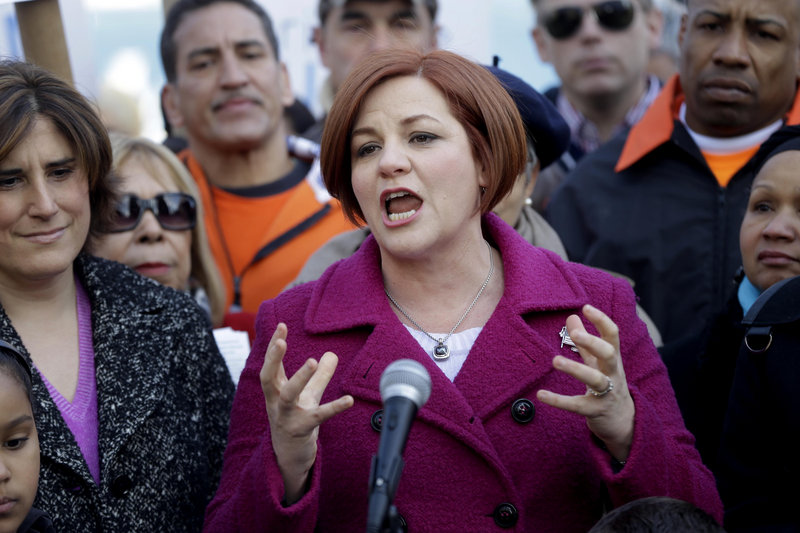NEW YORK – Hundreds of thousands of New York City workers are poised to get paid sick days in what may prove a pivotal moment in a national debate over whether businesses should be required to provide them.
After reaching a deal that could affect about 1 million workers in settings ranging from restaurants to construction sites, City Council Speaker Christine Quinn, union leaders and business groups lauded it Friday as a plan that met both workers’ needs and employers’ concerns.
But Mayor Michael Bloomberg called it bad for business and vowed a veto, which the council is expected to override.
While New York’s measure isn’t the first or farthest-reaching, worker advocates say it could be a turning point because of its sweep and stature.
“It’s a real step forward for our country because of the significance of New York City, the number of workers this supports and the fact that this creates momentum around the country,” said Debra L. Ness, president of the National Partnership for Women & Families, one of the groups pushing for paid sick time cause nationwide.
New York City is more populous than the five other cities and one state that have approved such laws so far, and the sick days campaign here drew in high-profile supporters such as feminist Gloria Steinem and “Sex and the City” actress Cynthia Nixon.
The deal in New York follows council votes just this month to approve paid sick leave laws in Portland, Ore., and Philadelphia, although it’s unclear whether Philadelphia Mayor Michael Nutter will sign the measure.
Proponents portray sick time as a matter of both working conditions and public health, and they see the recent developments as a welcome upswing after setbacks in recent years. Dan Cantor, national executive director of the left-leaning Working Families Party, calls the agreement in New York “a booster shot for the paid sick days movement.”
But critics including Bloomberg say government should leave sick time arrangements to workers and bosses.
The requirement could hamper small businesses and hinder job growth while unemployment remains high, the opponents say.
“The bill is short-sighted economic policy that will take our city in the wrong direction,” Bloomberg said in a statement Friday. He noted this week that his own company, the financial information giant Bloomberg LP, offers the benefit.
Businesses with 20 or more employees would have to provide five paid sick days a year beginning in April 2014. Enterprises with 15 or more workers would have to do the same by October 2015.
All others would have to provide five unpaid sick days per year, a provision advocates call a significant protection for an estimated 300,000 workers against getting fired for calling in sick.
A vote is expected next month.
Luis Gonzalez can’t count the number of times he’s gone to work with the flu, colds and other ailments during 11 years of working construction jobs around the city.
“I have no choice but to work” because of not having sick days, Gonzalez, 33, said through a Spanish interpreter. He’s originally from Azogues, Ecuador.
But some businesses that don’t offer sick days say they have other ways for employees to stay home when they need to.
The Rockaway Seafood Company’s roughly 20 employees swap shifts if they’re ill — or they did before Superstorm Sandy devastated the still-closed eatery, co-owner Chris Miles said. Shift-switching may be an allowable alternative under the upcoming law.
If not, “if and when we do get back open, here we are going to have to lay out extra money for something that has never really been an issue,” Miles said.
Send questions/comments to the editors.



Success. Please wait for the page to reload. If the page does not reload within 5 seconds, please refresh the page.
Enter your email and password to access comments.
Hi, to comment on stories you must . This profile is in addition to your subscription and website login.
Already have a commenting profile? .
Invalid username/password.
Please check your email to confirm and complete your registration.
Only subscribers are eligible to post comments. Please subscribe or login first for digital access. Here’s why.
Use the form below to reset your password. When you've submitted your account email, we will send an email with a reset code.